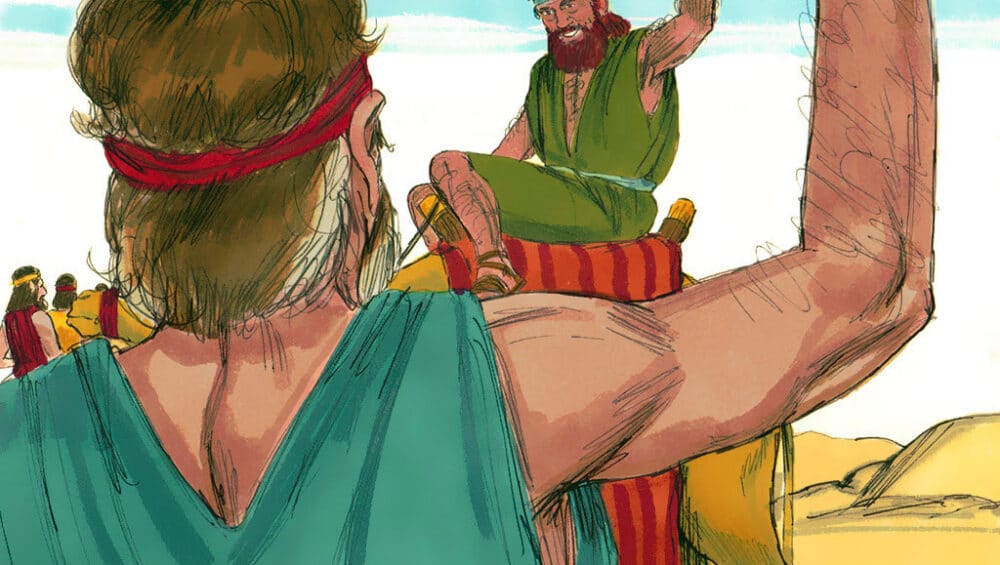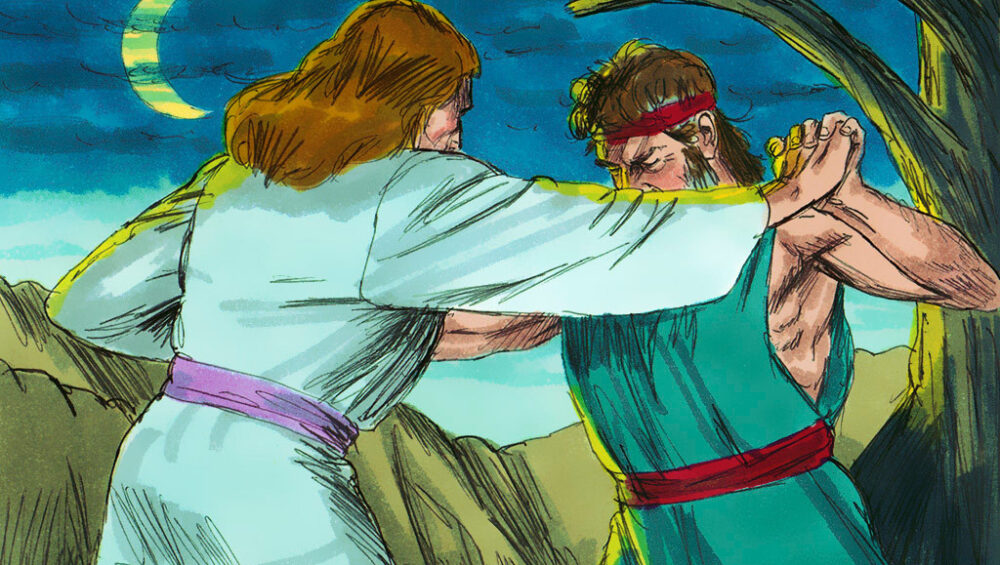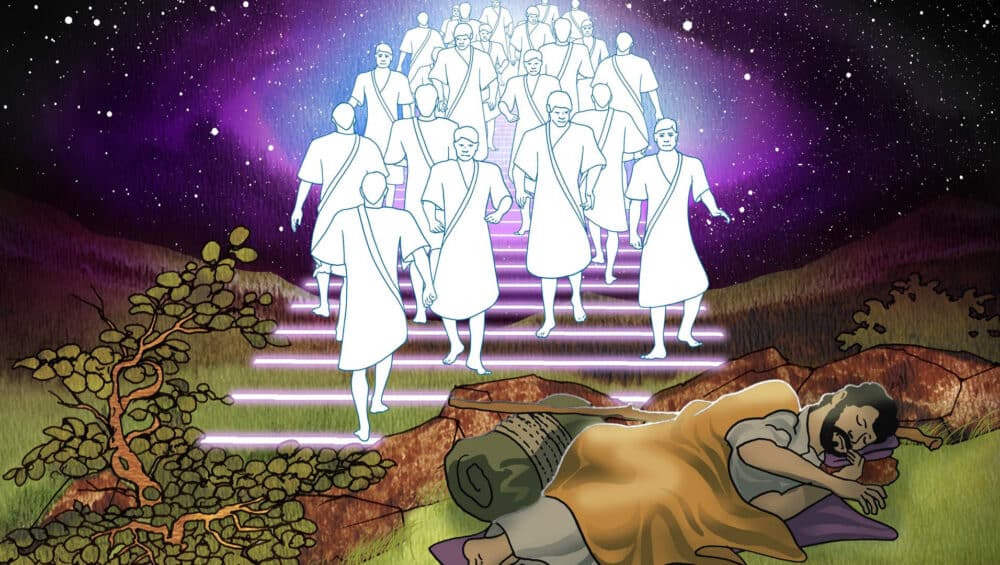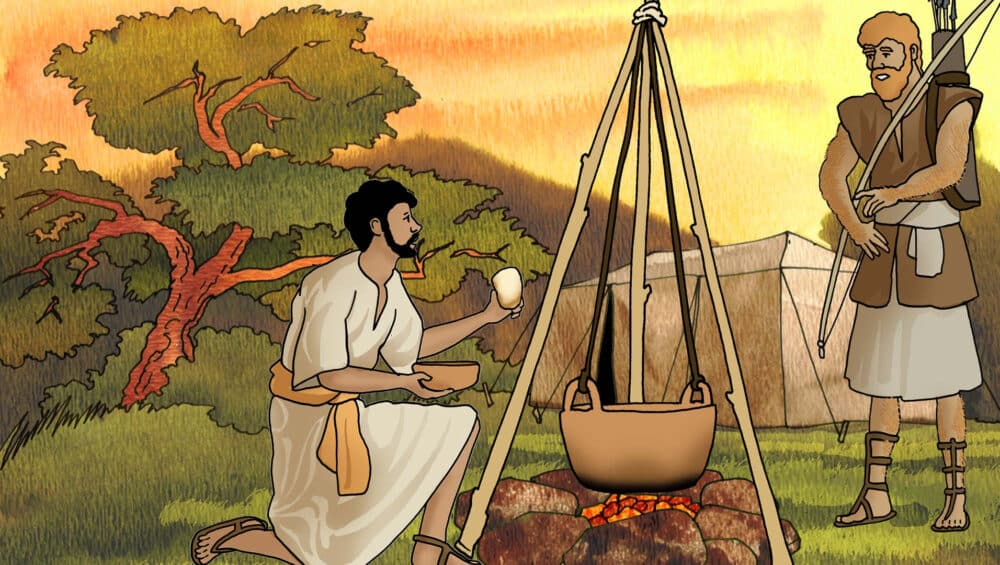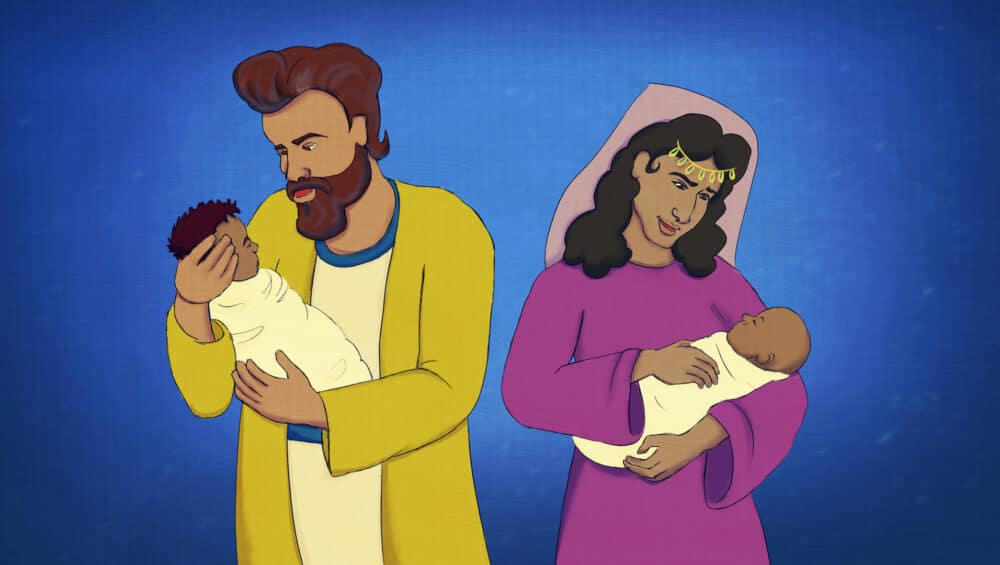Sweet Publishing / FreeBibleimages.org
Welcome to Livin’ Light’s Bible-In-A-Year challenge of discovering God’s love for us and His purpose for our lives. Here is the format for this great adventure: The daily reading assignment is posted at 5 a.m. After each day’s reading, Leigh An Coplin, the blog host, shares observations and poses questions about difficult passages to Rob Fields, who studied Christian Education at Asbury Seminary and currently teaches Biology in the Orlando area. To start from the beginning, click on 365 Bible Readings and scroll down to Day 1. The reading schedule is taken from The One Year Chronological Bible NLT.
Today’s Reading
— Genesis 36:1-19
— 1 Chronicles 1:35-37
— Genesis 36:20-30
— 1 Chronicles 1:38-42
— Genesis 36:31-43
— 1 Chronicles 1:43-2:2
(1906 BC) Click here for a timeline of the whole Bible.
Questions & Observations
Q. What significance is there in letting the readers know the lines of Esau?
A. It appears that the writer wants us to know that the descendants of Esau aligned themselves with the various tribes in the land of Canaan, the land promised by God to the descendants of Jacob. It appears that the rivalry the began with Jacob and Esau would continue for many generations (watch for the word Edomites, which is the most common name for Esau’s family). Various later sections of the Old Testament list Edom as one of the greatest rivals and enemies of Israel. So what the writer wants us to bear in mind is that these enemies tribes of Israel trace their origins and alignment to the rival of one of their founding fathers: Jacob and his brother Esau.
Q. With some exceptions, it appears that the Bible usually traces ancestry through the men. Are women viewed less important?
A. Yep. The Bible definitely prioritizes men over women, as did the larger world it was written in. Though there are a few women who “make the cut” as being mentioned (Sarah, Rebekah, Rachel and Leah, Miriam, Rahab, Deborah, Ruth, Naomi, Esther is a fairly complete list, Mary), it is mostly the lines of men that are traced by the story.
Q. (36:12) Esau’s son had a concubine. How were concubine’s viewed? One of God’s commandments is, “Thou shall not commit adultery.” Of course, as humans surrounded by temptation, all of God’s commandments were not followed. But, is a man having one wife something that gets decreed later?
A. Concubinage is something the Bible discusses (and does not necessarily approve of), and it is something of a different category from adultery. We might think of it like this: a powerful ruling man (a king or ruling person such as in this case) already has a wife, but he has the wealth to take on other women and be in relationship with them (with the wife’s knowledge — this isn’t the man sneaking around). Especially if the other women are of a different class (many concubines were from lower class families or were even servants or slaves), rather than marry her (he already had a wife), he would make her something like a “lower wife” or concubine. Basically, it was a way for the man to control a greater number of women (and the children they produced — something important to keep in mind) without “technically” violating his marriage vows. We will see this come into play as Israel establishes its own line of kings in later OT books.
Q. (36:15): Can you describe a “clan”? How big are they? Does it have the same meaning as “nation”? Do they let others in?
A. I tried to find some good material on this, and honestly didn’t come up with a whole lot. Clan size could very greatly, especially since it would have involved servants or other “extra” members (who weren’t technically family) in the count. If a clan got big enough to have a particular ruler, it could be considered a kingdom. Usually, kingdoms referred to locations (the kingdom of Jerusalem, or Babylon, etc.) and territory, rather than family (where clan would be rightly used).
Q. (1 Chronicles 1: 35-37): Why does the Bible repeat these descendant stories? Who wrote 1 and 2 Chronicles?
A. Yes, the Bible frequently repeats stories of many sorts, including genealogies. Part of the reason for this was that there were various materials circulating among the various tribes before what we know as the OT was assembled (which happened in fairly modern times). Since it was so important for a family to be able to trace its roots, it is unsurprising that genealogies were frequently presented.
We don’t know exactly who wrote 1 and 2 Chronicles, but we do know that they were written much later than most of the other works of the OT (one of the last books written along with Malachi). Chronicles (its only one book in Jewish Bibles- though the material is the same) was written to teach the history of the Jews to the people in the post exile period when Jerusalem was being rebuilt. It was written as a way for the Israelite people who lived around 500 BC (give or take a few hundred years) to connect with their history. As such, there are frequently places where Chronicles tells us a story that we have already “heard” elsewhere.
Q. (Gen. 36: 31): So there were kings ruling over the clans of Jacob, the clans of Esau and other groups — the whole Canaan area? Do we need to know what was going on around these areas at the time?
A. The entire land of Canaan was under the control of various tribes, and this continued even when the Israelites return to the land several hundred years later. This does not mean that these kings controlled everything, it is clear from the story that Jacob and his sons did not serve a king, they were powerful enough to be in charge of their own area. So Jacob’s family controls its own territory. But the story is telling us that some of the clans the Israelites will deal with when they return to Canaan from Egypt will trace their roots to Jacob’s brother Esau.
For more insight:
— Edom in a nutshell: https://m.bibleodyssey.org/articles/edom/
— Map of Edom and Israel: https://endtimebible.com/maps/edom/
— All of this ancestry may seem boring, but God gives it to us to prove his credibility. He gives us so much evidence that He is real. More at https://livinlight.org/blog/dispelling-doubts-of-christianity/
Tomorrow’s reading: Genesis 37:1-38:30; 1 Chronicles 2:3-6,8; Genesis 39:1-23

